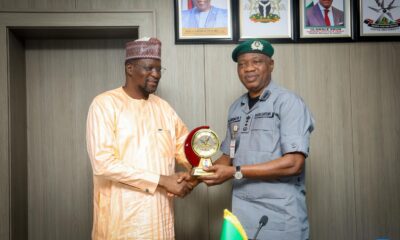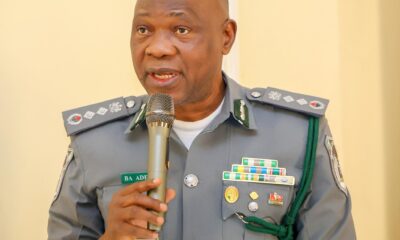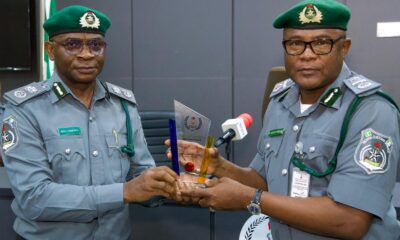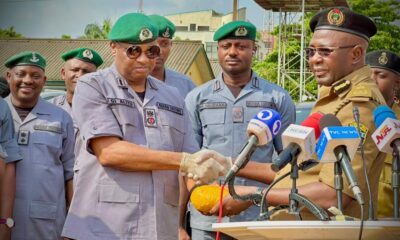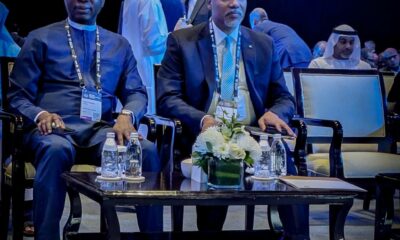Business
Nigeria at the Helm: WCO Chairmanship Sparks Urgent Call for Customs Reform and Port Overhaul
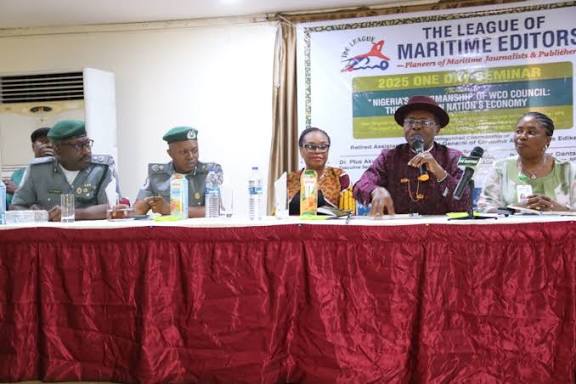
BY FUNMI ALUKO
As Nigeria assumes the prestigious chairmanship of the World Customs Organization (WCO) Council, maritime stakeholders gathered at Rockview Hotel, Apapa, for a high-powered seminar that doubled as a strategic wake-up call, suggesting that the world is watching and Nigeria must lead by example.
Organized by the League of Maritime Editors, the one-day seminar themed “Nigeria’s Chairmanship of WCO Council: The Impact on Nation’s Economy” brought together officers of the Nigeria Customs Service, Nigerian Shippers’ Council, NIMASA, Nigerian Ports Authority, and industry titans to dissect the implications of Nigeria’s new global role.
Retired Assistant Comptroller General of Customs, Charles Edike, chaired the event with statesmanlike gravitas, while thought leaders like Mr. Francis Anieze-Chukwu (representing Fwdr. Eugene Nweke) and Dr. Pius Akutah of the Shippers’ Council delivered papers that didn’t mince words: Nigeria’s tenure at the WCO must translate into real reforms, not ceremonial prestige.
From incongruent trans-border cargo transfer to impaired single window data automation, and from piracy and port inefficiencies, the seminar spotlighted the urgent need for Nigeria to clean its house. “We cannot preach global best practices abroad and tolerate rent-seeking and monopoly pricing at home,” one participant declared.
The communique read at the end of the event which highlights policy urgency, made the following key observations:

*Nigeria’s WCO chairmanship is a strategic opportunity to lead Africa in trade harmonization and customs modernization.
*The country’s ports and border posts must become models of efficiency, transparency, and compliance.
*Customs reforms like Time Release Studies, Data Analytics, and the B’Odogwu Platform were hailed as game-changers – but only if backed by enforceable laws and inter-agency collaboration.
Participants also called for the passage of the Nigerian Port Economic Regulatory Agency Bill and urged the inclusion of customs studies in school curricula to build future capacity.
With the African Continental Free Trade Area (AfCFTA) gaining traction, Nigeria’s leadership at the WCO Council places it at the heart of continental trade policy. The seminar emphasized the need for mutual recognition of Authorized Economic Operators (AEOs), digital customs capacity building, and standardized data protocols across Africa.
The seminar also introspect Nigeria’s infrastructure and image, and urged the fixing of the Roads, as part of fixing its trade reputation. One of the most visceral recommendations centred on fixing the roads leading to the nation’s seaports. “Global leadership must be mirrored in local infrastructure,” participants warned, noting that poor access routes undermine trade facilitation and investor confidence.
The communique closed with a rallying cry to the pres to support the CGC and Nigeria’s WCO tenure through constructive, developmental reporting. The message was clear, Nigeria’s global customs leadership is not just a title but a test.

